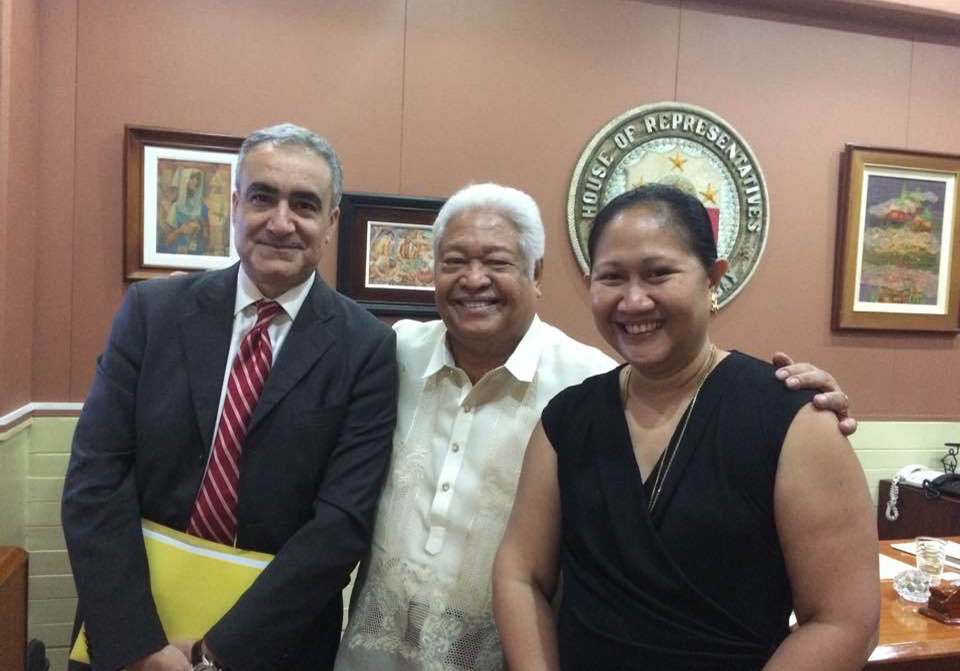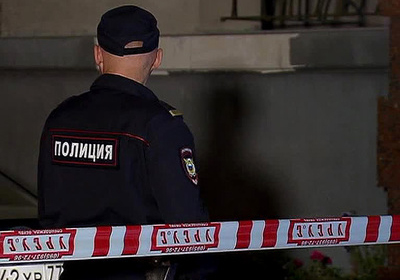
Nov 14, 2016 | News
The Philippines government must immediately halt its initiative to restore the death penalty to the country after abolishing the practice a decade ago, said the ICJ today.
The ICJ received reports that the Sub-Committee on Judicial Reform of the House of Representatives of the Philippines has commenced hearings on a bill bringing back the death penalty into Philippine domestic laws.
The first hearing reportedly occurred on 8 November 2016.
It took place without adequate notice, preventing important stakeholders from participating or giving input.
“President Rodrigo Duterte’s administration seems to be hell-bent on returning to the bad old days of executing people,” said Sam Zarifi, ICJ’s Asia director.
“Reinstating the death penalty would breach the Philippines’ international legal obligations and would constitute an all-out assault on decades of global advances in protecting the right to life through abolition of this barbarous practice,” he added.
Under international standards, including the International Covenant on Civil and Political Rights, States may not reintroduce the death penalty once it has been abolished.
The ICJ considers that the death penalty constitutes a violation of the right to life and the prohibition on cruel, inhuman or degrading punishment.
“There appears to be a deliberate strategy on the part of the House of Representatives to circumvent meaningful consultations and a full debate on this unconscionable measure,” said Zarifi.
“The ramifications on the Philippines’ obligations under international law appear not to have been properly considered by legislators who proposed the measure bringing back the death penalty.”
Until now the Philippines had set an example of regional and global best practice on the abolition of the death penalty.
It abolished the death penalty in 2006 and became the first member of the Association of Southeast Asian Nations (ASEAN) to become party to the 2nd Optional Protocol to the ICCPR on the abolition of the death penalty.
The 2nd Optional Protocol provides for no possibility of denunciation or withdrawal and the Human Rights Committee has affirmed that States Parties may not withdraw from this treaty.
Moreover, the Committee has stressed that under the ICCPR, no abolitionist State may lawfully reintroduce the death penalty under Article 6 on the right to life, whether or not they are party to the 2nd Optional protocol.
“The Philippines Congress must perform its role as an equal branch of the government and stop such a horrific move backwards for the country,” Zarifi added.
“Filipino legislators must question the government as to why it’s even considering such an action, especially at a time when the country is facing an outbreak of extrajudicial executions with apparent government complicity.”
On 31 May 2016, the ICJ wrote to President Rodrigo Duterte underscoring that the death penalty was not only an affront to human rights, but that it had no demonstrable deterrent effect on addressing serious crime.
The ICJ pointed out that investing in improved investigation techniques and capacity, and making other needed reforms to the criminal justice system would be the best way to reduce crime.
Contact:
Emerlynne Gil, ICJ’s Senior International Legal Adviser for Southeast Asia, t: +66840923575 ; e: emerlynne.gil(a)icj.org

Aug 11, 2016 | News
The ICJ today urged President Duterte to respect the judiciary’s institutional independence and allow it to conduct its work, particularly in disciplining its own judges, without external influence or undue interference.
This week, President Duterte publicly released a list of public officers, including judges, who are allegedly involved in the illegal drugs trade. In response, on 9 August 2016, Chief Justice Maria Lourdes Sereno wrote to President Duterte noting that it is the responsibility of the judicial branch to discipline judges.
In her letter, the Chief Justice also stated that the disciplining of judges should be done without compromising the independence of the judiciary.
In response, President Duterte warned Chief Justice Sereno not to set off a “constitutional crisis”, saying that he may “order” the executive department not to “honor” the judiciary.
According to the UN Basic Principles on the Independence of the Judiciary and the UN Special Rapporteur on the independence of judges and lawyers, the body responsible for the discipline of judges should be independent of the executive and composed mainly (if not solely) of judges and members of the legal profession.
The ICJ therefore calls for the Supreme Court of the Philippines to be free to establish and employ its established mechanisms to discipline its own judges, in full respect for procedural guarantees.
On a related issue, the ICJ is now in the Philippines to speak to lawmakers regarding a proposal to re-introduce the death penalty and its concerns regarding the recent spate of extrajudicial killings in the country.
The organization has previously written to President Duterte regarding its concerns on the proposal to re-introduce the death penalty and the rising number of deaths of people who are alleged to be involved in the illegal drug trade.
“The proposed reintroduction of the death penalty, the spate of extrajudicial killings, and the fervor currently exhibited by President Duterte in going after allegedly corrupt members of the judiciary are directly linked to his zeal to address a perceived widespread drug menace in the country,” said Sam Zarifi, ICJ’s Regional Director for Asia and the Pacific.
The ICJ strongly urges President Duterte to focus his efforts in strengthening key institutions such as the judiciary so that they can be strong allies in his efforts to address crime in the country.
Contact:
Emerlynne Gil, ICJ’s Senior International Legal Adviser, t +66 840923575 ; e: emerlynne.gil(a)icj.org
Picture: Sam Zarifi and Emerlynne Gil with Congressman Edcel Lagman (in the center), the main proponent of the law that abolished the death penalty in the Philippines in the past. He is now leading the charge in the House of Representative to try to defeat the proposal to reimpose the death penalty.

Mar 10, 2016 | Advocacy, Non-legal submissions
The ICJ today delivered an oral statement on counter-terrorism legislation in these countries, in an interactive dialogue at the UN Human Rights Council with the the Special Rapporteur on the promotion and protection of human rights and fundamental freedoms while countering terrorism.
The text of the statement follows:
COUNTER-TERRORISM LEGISLATION IN EGYPT, TUNISIA AND PAKISTAN
10 March 2016
Mr President,
The International Commission of Jurists (ICJ) welcomes the attention given by Special Rapporteur Ben Emmerson, to defective counter-terrorism legislation that facilitates violations of human rights, as reflected for example by communications on Egypt, Tunisia and Pakistan in the Communications Report of Special Procedures (A/HRC/31/79).
Numerous counter terrorism laws promulgated or applied in these and other countries include overly broad or imprecise definitions of terrorism-related offences. These extend the laws’ reach beyond acts of a truly terrorist character. Such laws can be and are abused or misapplied to criminalize the legitimate and peaceful exercise of fundamental rights and freedoms.
Further, these laws provide sweeping immunities that contribute to pervasive impunity for unlawful killings by security forces.
These laws also facilitate violations of the right to liberty and fair trial rights and insufficiently safeguard against abuses in detention. In Tunisia a person can be held in police custody without being brought before a judge for up to 15 days. In Pakistan, suspects can be held in preventive detention without charge, and without being brought before a judge, for up to 90 days.
Egypt and Pakistan continue to use military courts to conduct unfair trials of civilians in terrorism cases, contrary to international standards. At least eight civilians sentenced to death in secretive trials by military courts in Pakistan have been hanged since January 2015. “Expedited” procedures in terrorism circuit courts in the Egyptian civilian system also give rise to fair trial concerns.
The ICJ invites the Special Rapporteur to comment on measures or mechanisms that states, inter-governmental organisations, and civil society can take to help ensure that states such as Tunisia, Egypt and Pakistan repeal or amend counter-terrorism legislation to bring it into line with their international human rights obligations and commitments.

Mar 23, 2012 | Advocacy, Cases, Legal submissions
On 22 March the ICJ together with 8 other organizations submitted and amicus curie brief in support of an action by the American Civil Liberties Union to obtain information under the US Freedom of Information Act about the CIA’s use of drones to carry out targeted killings around the world.
CIATargetedKillingsMemos-AmicusBrief-Joint-USA (download the joint amicus brief)









